Cost blowout used to dump 2026 Commonwealth Games ‘overstated’, Auditor-General finds
The Victorian government exaggerated the cost blowout used to justify dumping the Commonwealth Games, a damning Auditor-General probe has found.
Victoria
Don't miss out on the headlines from Victoria. Followed categories will be added to My News.
The state government has been accused of fudging the numbers to explain its way out of cancelling the 2026 Commonwealth Games.
In a damning report published on Wednesday, Victoria’s Auditor-General Andrew Greaves blamed a lack of due diligence and bureaucratic incompetence for the games debacle.
He called for a comprehensive review into why key agencies did not work together effectively to give frank, full and timely advice to the government.
The government has already rejected calls for this review.
In his review, Mr Greaves also cast doubt over government claims of a cost blowout to almost $7bn, saying the figure was overstated.
Instead Mr Greaves found costs had blown out to about $4.9bn.
“The original Games budget was unrealistically low, but the $6.9bn cost estimate the government publicly released when it withdrew from the Games was overstated,” he said.
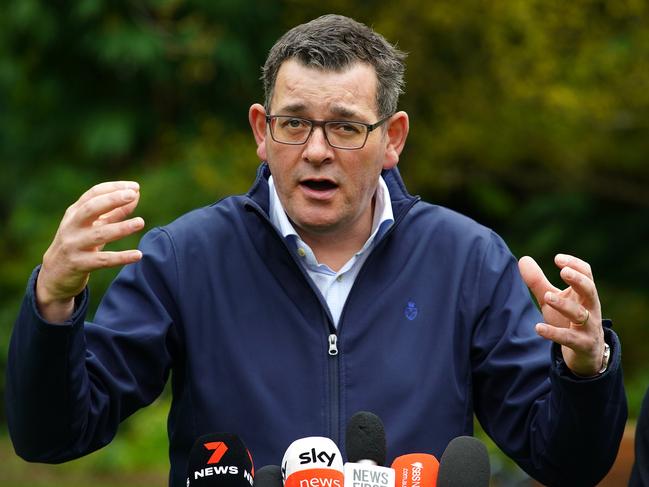
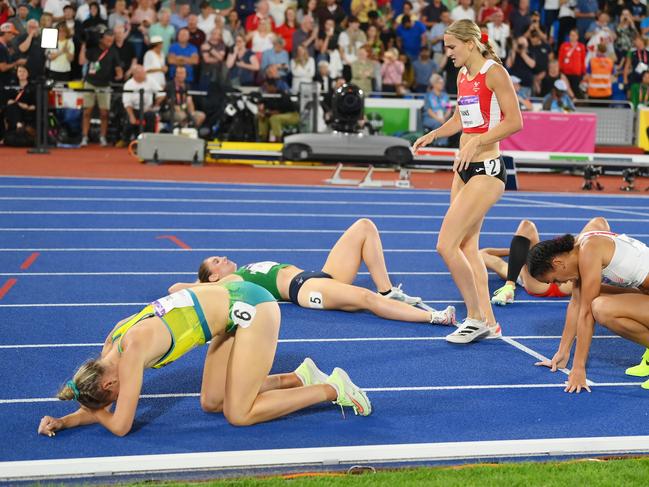
Opposition leader John Pesutto said the report confirmed Victorian Premier Jacinta Allan — the minister responsible for delivering the Games when they were dumped — had lied about the cost of the event.
He said Ms Allan had misled Victorians about the costs, confirming a $2.6bn figure weeks after Cabinet agreed to increase the budged by $1bn to $3.6bn.
Mr Pesutto said that amount was later hidden in budget papers.
“When we say that Premier Jacinta Allan and her government have lied to Victorian people, that’s why we say that,” he said.
“It’s in the report... the premier’s credibility is in tatters today.”
Ms Allan stood by the numbers the government used to cancel the Commonwealth Games, but conceded the original business case was “far from ideal”.
She also claimed the scathing report confirmed “the government made the right decision” to scrap the event due to cost pressures.
“We take responsibility for making the right decision to not proceed with at least a $6bn cost for a 12-day sporting event,” she said.
Ms Allan said the auditor-general’s findings were all levelled at departments for failing to work together productively and made no recommendations to government.
She said she would meet with Department of Premier and Cabinet secretary Jeremi Moule to raise her concerns about the report’s findings.
“It is my expectation, regardless of the issue at hand or the decision to be made, that government agencies and departments work well together, work cooperatively together, to help provide the best possible advice to government and it will be in that frame that I’ll be raising my expectations with the Secretary of the Department,” she said.
Ms Allan said she expects departments to give careful consideration to external expertise, especially in the wake of the Games’ fiasco.
“There are always pressures and deadlines when it comes to decision making of government,” she said, referring to the original business case which had the event costing $2.6bn.
“Looking back, (we) acknowledge the process was far from ideal, that the estimates were clearly incorrect.”
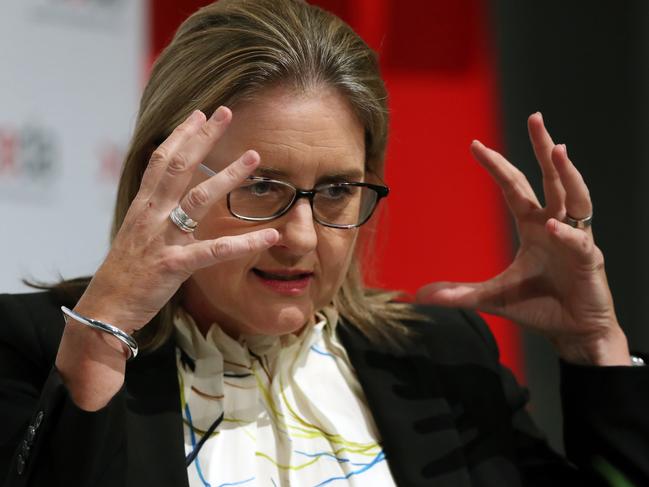
Other key findings in the auditor general’s report included that The Department of Jobs, Skills, Industry and Regions’ (DJSIR) business case for the Games was inadequate to support an informed decision by the government on the likely costs and benefits of hosting.
And the public sector’s advice to the government did not always meet the standards required by the Public Administration Act 2004 and key guidance documents.
Overall Mr Greaves found the cancelled event had cost Victoria $589m, including $150m in employee and operating costs shared between DJSIR and the Games organising committee.
A further $42m was incurred by Development Victoria for detailed planning and delivery cases for venues and villages.
“This waste would have been avoided if agencies had worked together better to give frank and full advice to the government before it decided to host the Games,” the report found.
“The government relied on the Department of Jobs, Skills, Industries and Regions business case when it decided to host the Games and determined the budget.
“The business case raised the risks associated with hosting the Games. But it underestimated the costs and overstated the benefits.”
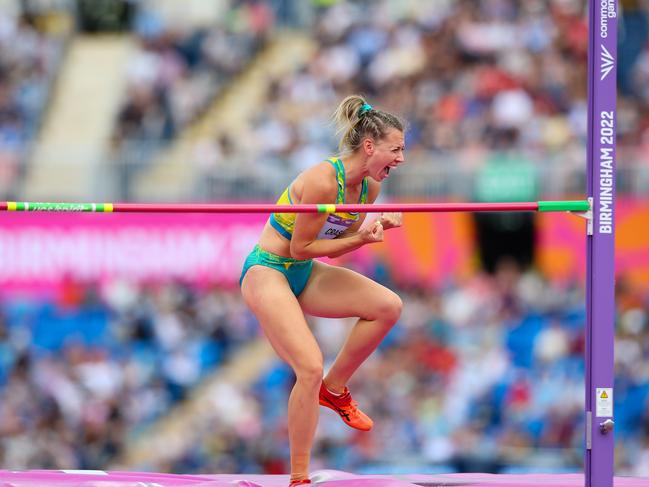
The Victorian government spectacularly cancelled the 12-day sporting event last July, claiming the event had blown out from $2.6bn to nearly $7bn.
Despite warnings to the government about the rising cost of running the event, Ms Allan had weeks earlier told parliament the government was making “tremendous progress”.
A day earlier Ms Allan had been warned planning was billions of dollars over budget and that significant changes to the proposed event would have to be made.
It was later revealed the business case used by the Andrews government to sign up to host the Commonwealth Games was so rushed it did not include a proper analysis of “key elements of Games planning”.
Responding to the report, former Games boss Jeroen Weimar defended the work of the organising committee.
“The Organising Committee Board and staff worked constructively and transparently with government officials to explore a range of options for delivery of the 2026 Commonwealth Games,” he said.
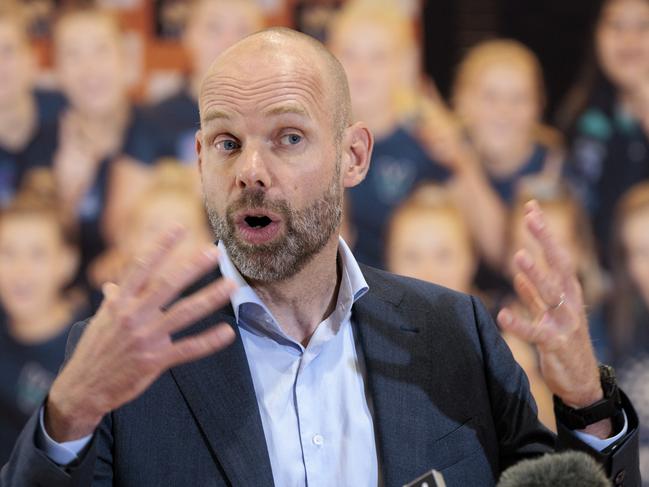
In a response to the report, DJSIR secretary Tim Ada said the department worked diligently to complete the business case.
“The department maintains the business case was prepared based on an established methodology for economic impact and cost benefit assessment, aligned with the Games Value Framework used for previous Commonwealth Games, and assessment of large sporting events,” he said.
“Importantly, the business case identified assumptions, limitations and risks, including that further assessment of cost estimates would be required following the finalisation of the sports program and venues.
“Given these significant limitations, the department considered that the presentation of the benefit cost ratio as a range was not unreasonable at that time.
“The department accepts the multi-regional-city delivery model proved more costly than initially anticipated and acknowledges that with more time and the ability to consult more widely, the business case could have included more detailed cost estimates.”
Shadow Minister for Tourism, Sport and Events, Sam Groth, said the report confirmed the Games was a “cruel hoax to win votes in regional Victoria, and has ended up costing Victorians at least $589m.”
“Labor only governs to play politics, and playing politics with the Commonwealth Games has destroyed our state’s reputation,” he said.
“The Auditor-General has found the Allan Labor government knew the Games were in trouble before the last election, but continued to lie to the Victorian people and drastically overstated the costs of running the event once they knew they had to get out.”




